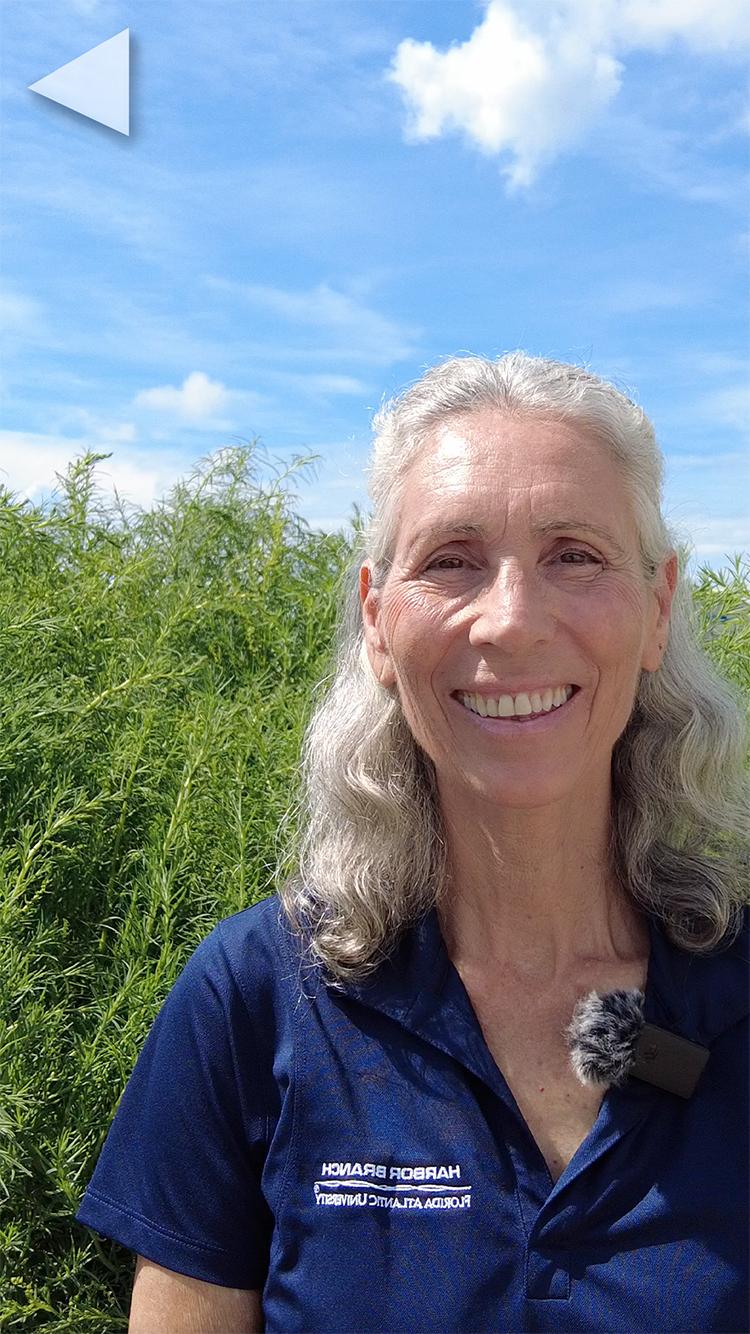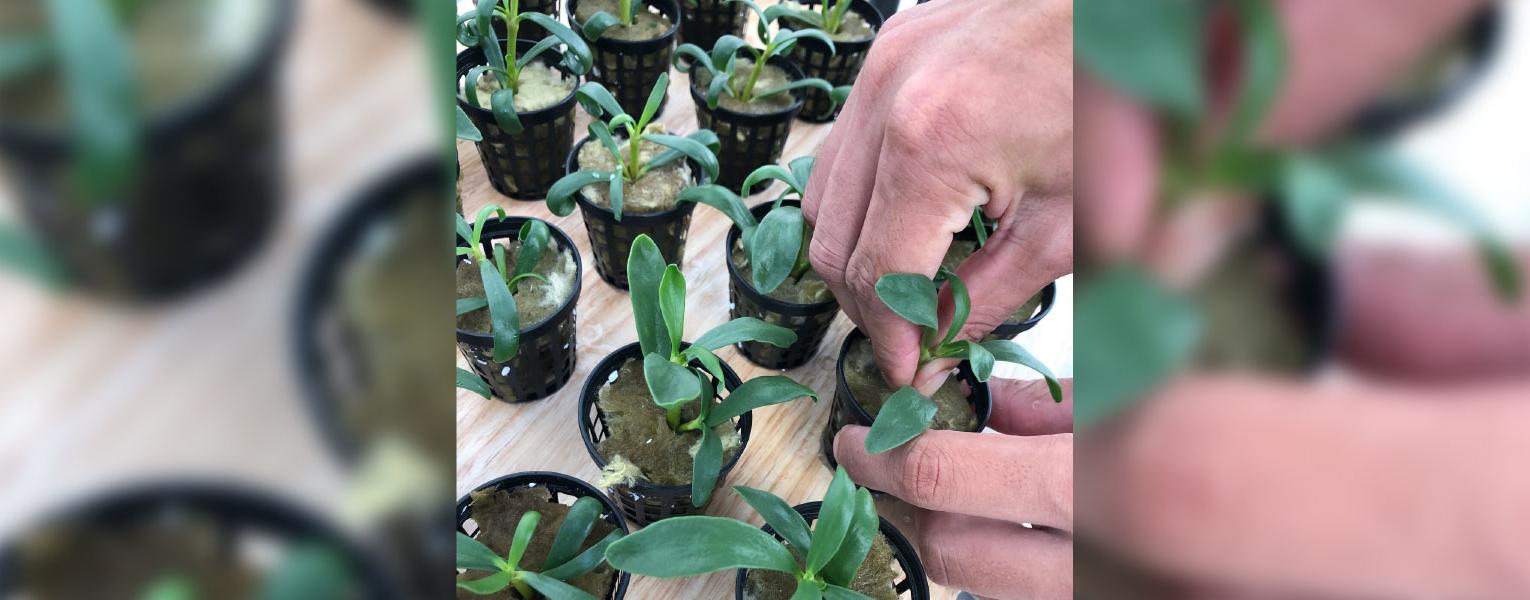11/8/2023
Science in Seconds: Farming Sea Vegetables
Helping People and the Planet
Megan Davis, Ph.D., research professor FAU Harbor Branch Oceanographic Institute, says everyone should eat their veggies – specifically sea veggies, which are nutritious plants and a sustainable food source.
The farming of sea vegetables is growing rapidly in 50 countries and is overwhelmingly comprised of farmed seaweeds, said Davis. They are used in everything from the food industry to animal feed, fertilizers, pharmaceuticals and cosmetics.
At FAU Harbor Branch, Davis grows sea vegetables as part of the aquaculture program that raises or grows two or more organisms together, called an Integrated Multi-Trophic Aquaculture system (IMTA). The IMTA system reduces waste and improves overall efficiency of aquaculture. In the FAU Harbor Branch system, the aquatic plants and seaweeds remove nutrients in the water produced from the marine fish, shrimp and other species grown in the system, and in turn yield highly productive and desirable crops, she said.
By growing sea vegetables, Davis and other researchers have been able to study their nutritional value to humans as a food source. They’ve found many health benefits in a range of species, including good amounts of fiber, high-quality protein, iron, calcium, potassium, phosphorus, vitamin A, zinc, magnesium and iodine.
For Davis, encouraging the growing and eating of sea vegetables is one way to get more nutritional and sustainable food to people in small fishing communities, including in Puerto Rico where she is currently working on a partnership queen conch nursery and hatchery, as well as in other Caribbean countries.
To learn more about Davis’s queen conch work, click here.
If you would like more information, please contact us at dorcommunications@kome-shibahara.com.

Megan Davis, Ph.D.
FAU Harbor Branch Oceanographic Institute
Watch video
